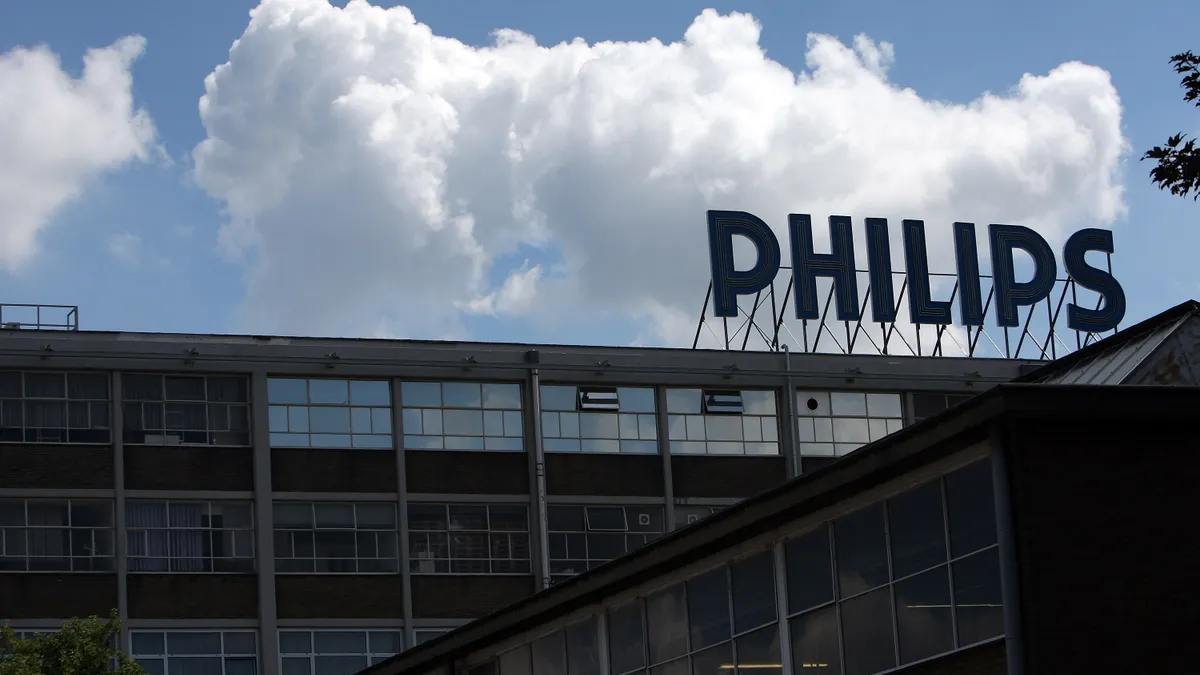Philips said Monday it has agreed to pay $1.1 billion to settle U.S. personal injury litigation and a medical monitoring class action related to its recalled sleep and respiratory devices.
Users of Philips sleep apnea devices and ventilators filed economic loss, medical monitoring and personal injury claims after the company began recalling more than 15 million devices in 2021. Philips reached a settlement on the economic loss class action in 2023, having previously set aside 575 million euros to pay for the agreement.
Now, Philips has reached an agreement to resolve the personal injury litigation and a medical monitoring class action without admitting fault or liability or that any injuries were caused by its devices. The deal covers around 58,000 users who filed a claim or entered a court-approved census registry.
CEO Roy Jakobs said on the first-quarter earnings call that “for the U.S., this is as final as it can get.”
The $1.1 billion amount is capped, regardless of the number of claims, and covers all costs. Philips said in an earnings statement that payments are expected in 2025 and will be funded with the company’s cash flow generation.
People representing the plaintiffs have committed to achieving at least 95% among eligible claimants and plan to work with Philips to set requirements for new claimants that surface later.
Jakobs said the requirements will require new plaintiffs to gather their own evidence.
The company’s stock price was up nearly 35% when the market opened Monday.
Clarity unlocks M&A
The agreement is one of several recent updates on the recall. Earlier this month, Philips signed its consent decree and received final court approval of the economic loss settlement. The settlement, which a judge approved last week, totaled more than $500 million, with the potential for Philips to pay more if eligible claims for recalled or returned devices exceed the amount agreed to.
Philips used its first-quarter update to disclose that insurers will pay 540 million euros (about $577.6 million) to cover recall-related product liability claims. The clarity provided by the updates has helped Philips cut its way to profitability in its sleep and respiratory segment.
“We've always said that once we get clarity on the [consent decree] we will take cost actions to make this business a profitable business, even at a 1 billion [euro] revenue. The good news is that we are already profitable. We have taken most of those cost actions, further actions to come,” CFO Abhijit Bhattacharya said on the earnings call.
With the most recent settlement agreement ending uncertainty, Jakobs said the company is now in a position to resume making bolt-on acquisitions. The CEO listed image-guided therapy and monitoring as potential areas of interest for M&A.
China slows growth
The update follows a quarter in which industry-wide anti-corruption measures in China again dragged on results. Philips named China as the main driver of the almost 4% drop in comparable order intake and a factor that limited sales growth.
Bhattacharya said planned government incentives “should give good impetus” and outlined the path to recovery in China.
“It fundamentally remains an attractive market. For the short term, consumer sentiment is subdued. We expect that to improve through the year,” Bhattacharya said. “Hospitals will continue to work through the industry-wide anti-corruption measures and then we expect to see more hospitals putting in orders. [In] the second half we expect China to contribute and so far we've started the year on plan.”












